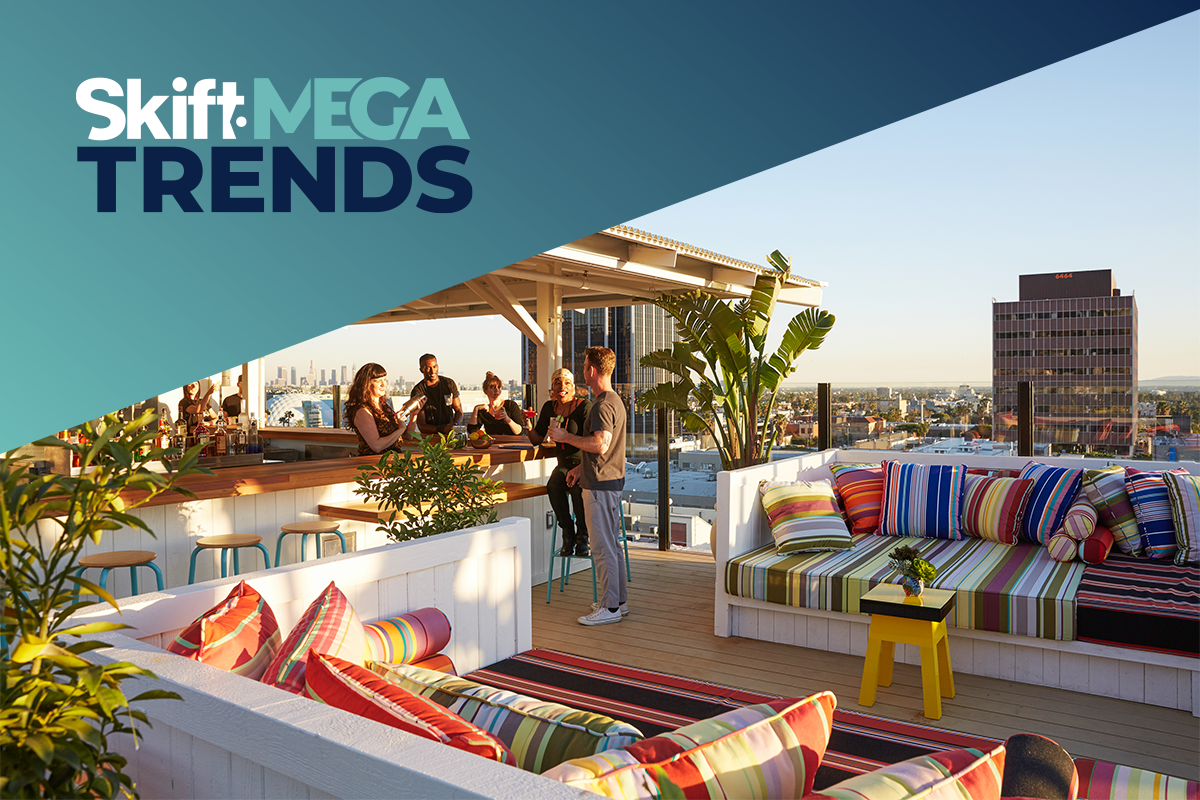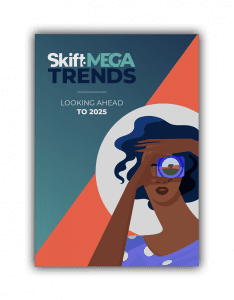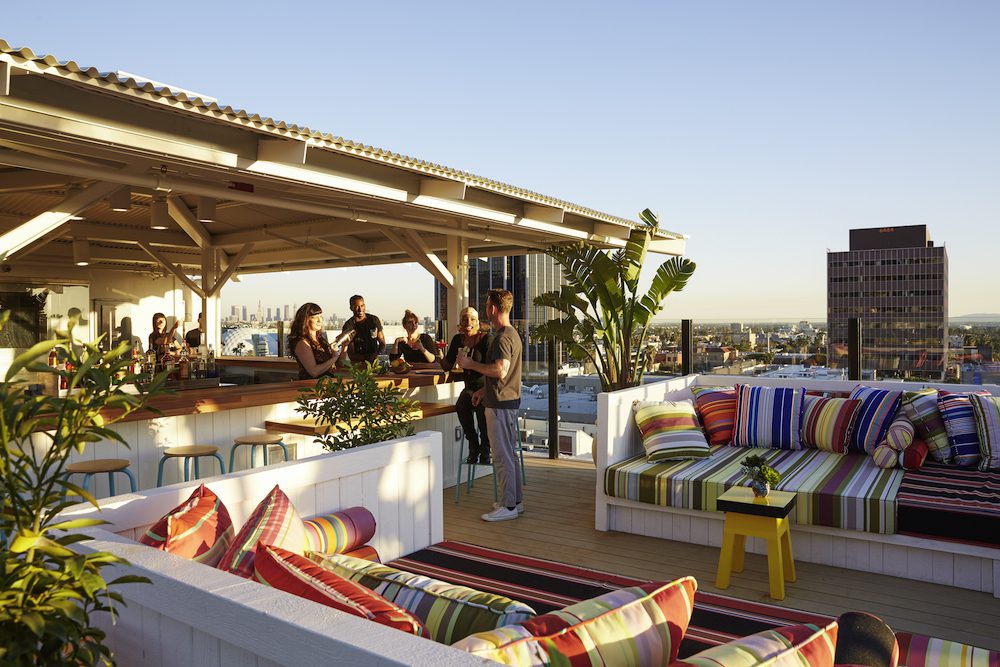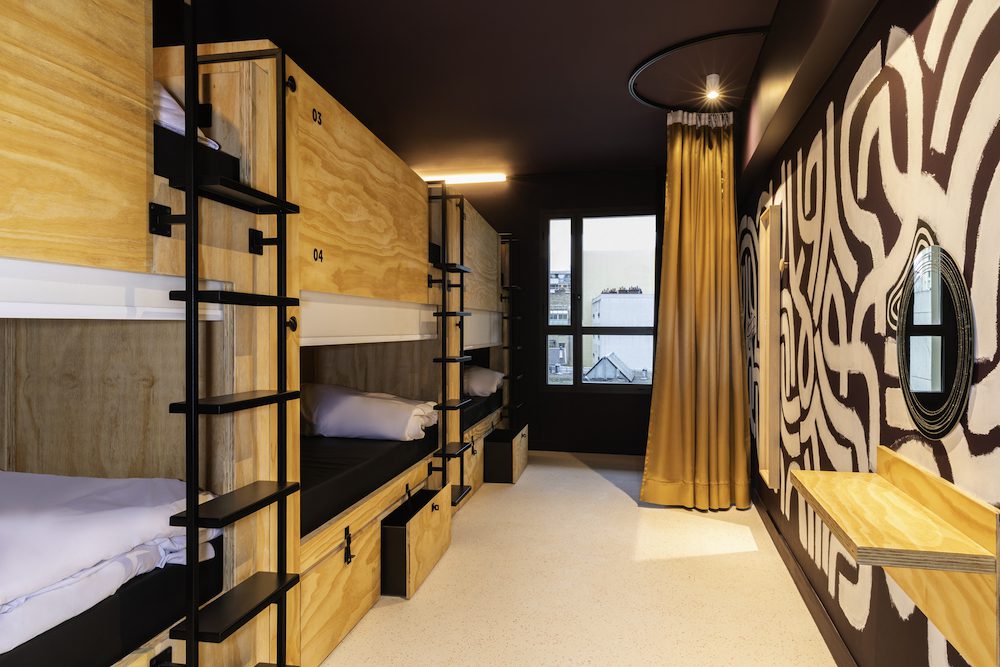Skift Take
Successful brands demonstrate high levels of resilience during economic and business cycles. With fewer barriers, limitations, and investments in brand-wide standardizations, lifestyle hospitality brands are able to pivot more quickly in the face of today’s challenges.
This sponsored content was created in collaboration with a Skift partner.
We recently released our annual travel industry trends forecast, Skift Megatrends 2025. You can read about each of the trends on Skift, or download a copy here.
Accor recently doubled down on the idea that lifestyle hotels, which evolved from the millennial trends of boutique and design-led independent hotels, will continue to fuel growth in the hospitality sector over the next three to five years.
Lifestyle currently accounts for roughly 5 percent of Accor’s annual revenue, whereas its current development pipeline is weighted much more heavily towards lifestyle properties, representing 25 percent of its pipeline by value. Spearheading this path forward, Accor recently announced that it’s in exclusive discussion to join forces in 2021 with Ennismore, which includes brands like The Hoxton, Gleneagles, and Working From_.
SkiftX invited Gaurav Bhushan, CEO lifestyle, Accor, and Sharan Pasricha, founder and CEO, Ennismore, to debate the definition of lifestyle, how it will evolve over the next five years, and how current industry trends might impact that long-term strategy.
SkiftX: How do you define “lifestyle” now, and how do you hope it is viewed by 2025?
Gaurav Bhushan: We define the lifestyle sector as properties that combine the best of both worlds: the individuality of an independent hotel combined with the smooth delivery of global hospitality expertise. Our lifestyle hotels, such as Tribe, Mama Shelter, and Mondrian, are known for standout design, dramatic F&B venues, unconventional living and gathering spaces, and an innate sense of creativity.
Over the next five years, we expect guests to continue to embrace our lifestyle brands as they gravitate to new ways of living and working, as well as wanting hotel experiences that are in tune with their own specific interests and tastes.
Sharan Pasricha: ‘Lifestyle’ has become a bit of a buzzword, like ’boutique hotels’ once was. To me, it means honing in on brand experiences and curating how brands make you feel – just as we have done so far with The Hoxton and Gleneagles. They’re destinations that offer experiences that start well before you check-in, such as the digital journey and social media.
Just as important, lifestyle hospitality means crafting spaces that make you feel at home and welcomed – places you actually want to hang out in. They’re often multi-functional, with a mix of dining, workspaces, entertainment, and retail, sometimes all under one roof. Lifestyle hotels are authentic reflections of the destinations they’re in, and work as an ecosystem, striving to support and embrace the communities around them.
SkiftX: What is your overall strategy for the lifestyle sector over the next five years?
Bhushan: Our strategy is to provide the support and resources our lifestyle brands need to achieve a more global presence. It’s critically important that we do this without diluting the attributes that made these brands successful in the first place. Our diverse lifestyle portfolio presents tremendous potential for future growth and expansion, so we want to help them grow in a way that fosters their unique character and features.
Pasricha: Ennismore is on a mission to be the most exciting hospitality company out there, and this new partnership means our five-year strategy already looks exciting, with over 110 hotels in the pipeline. In a post-pandemic world, people won’t be just seeking out bargain beds for the night. More than ever, they’ll be looking for experiences they can remember and cherish, like our Camp Hox pop-up this summer in Oxfordshire, which took the best bits of The Hoxton to the countryside.
SkiftX: What consumer or industry trends are you most closely monitoring that would impact your strategy?
Bhushan: The pandemic is the biggest issue to impact the hospitality industry in modern history, and its effects will ripple on for years. Not only are we seeing changes in how people choose to congregate and how we might need to rethink our communal and public spaces, but we also expect to see a long-term shift to more blurred boundaries between work and play, or blended social time, family time, and business time.
Pasricha: This past year has proven the scope of remote working, and there’s no doubt agile ways of working will continue to reign. This is something we’ve always supported with our open-door lobbies at The Hoxton and since evolved into our dedicated coworking brand, Working From_, which we look forward to building on.
Flexibility within hospitality has proved indispensable this year. We had already challenged the age-old mold of rigid check-in and check-out times with the introduction of Flexy Time at The Hoxton, for example. This is something we look forward to continuing to build on. As we navigate a post-pandemic world and adapt to new demands and new desires, lifestyle hospitality brands must continue to push boundaries, challenge expectations, and tell new stories.
Download Your Copy of Skift Travel Megatrends 2025
This content was created collaboratively by Accor Group and Skift’s branded content studio SkiftX.
Have a confidential tip for Skift? Get in touch
Tags: accor, hospitality, lifestyle, lifestyle branding, Skift Travel Megatrends 2025, SkiftX Showcase: Hospitality




